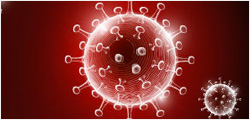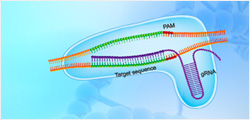MDC/CCL22 (67aa), Human
该产品已下架。
Macrophage-Derived/CCL22 Chemokine (MDC) , also known as stimulated T cell chemotactic protein (STCP1), is a CC chemokine initially isolated from clones of monocytederived macrophages. CCL22 is one of several Cys-Cys (CC) cytokine genes clustered on the q arm of chromosome 16. CCL22 shows chemotactic activity for natural killer cells, chronically activated T lymphocytes, monocytes and dendritic cells. CCL22 has mild chemotactic activity for primary activated T lymphocytes and no chemoattractant activity for neutrophils, eosinophils or resting T lymphocytes. CCL22 may also be involved in certain aspects of activated T lymphocyte physiology, such astrafficking activated T lymphocytes to inflammatory sites. CCL22 interacts with the cell surface chemokine receptor CCR4.
| Z03336 | |
|
|
|
|
|
|



































